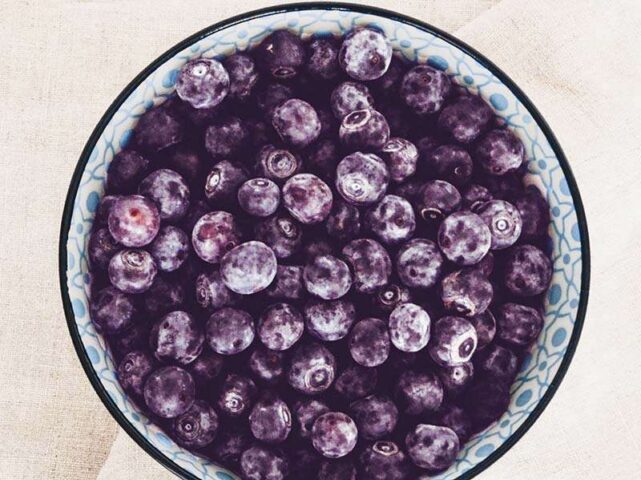Probiotics: To Include or Not in Your Diet?

When choosing a probiotic supplement, there are many things to consider. Will the probiotic help your microbiome (environment of bacteria in a specific area of your body)? Is the probiotic known to help your individual circumstance? Is the probiotic safe for you or your loved one? Infants, elderly and individuals with a weak immune system should not take probiotics unless recommended by their medical doctor. Here is a guide to help individuals choose when to take a probiotic if their medical doctor approves.
| Condition | Probiotics Associated with Improved Symptoms | Evidence |
Weight to lose |
Lactobacillus gasseri & or Lactobacillus rhamnosus | Weight loss (14 -16) |
IBS (irritable bowel syndrome) |
Combinations of Bifidobacterium, Lactobacillus, & Streptococcus (17) | Improve IBS symptoms, bloating, & flatulence (17) |
Diarrhea due to infection by Clostridium difficile |
Lactobacillus rhamnosus Lactobacillus casei (18) | Reduce the risk of antibiotic-associated diarrhea and C. difficile infection & aid in treatment (18) |
High cholesterol |
Fermented milk containing Lactobacillus acidophilus, Enterococcus faecium & Streptococcus thermophiles (19) | Lowering effect of total & LDL cholesterol (19) |
Mood and Depression |
Lactobacillus casei strain Shirota (LcS) (20) Lactobacillus plantarum (22) | Decrease anxiety and depression (20, 22) |
To help find which brand to use, consider a visit to www.ConsumerLabs.com, the Clinical Guide to Probiotic Products Available in Canada, or another third-party company that tests a variety of brands for the accuracy and quality of their product. Always consult your medical doctor before taking any probiotic or supplement. Supplements are not regulated by the Food and Drug Administration.
References:
1. Venugopalan V, Shriner KA, Wong-Beringer A. Regulatory Oversight and Safety of Probiotic Use. Emerg Infect Dis. 2010;16(11):1661. doi:10.3201/eid1611.100574
2. Barzegari A, Eslami S, Ghabeli E, Omidi Y. Imposition of encapsulated non-indigenous probiotics into intestine may disturb human core microbiome. Front Microbiol. 2014;5. doi:10.3389/fmicb.2014.00393
3. Probiotics: What You Need To Know. NCCIH. Accessed July 25, 2020. https://www.nccih.nih.gov/health/probiotics-what-you-need-to-know
4. Sanchez M, Darimont C, Drapeau V, et al. Effect of Lactobacillus rhamnosus CGMCC1.3724 supplementation on weight loss and maintenance in obese men and women. The British journal of nutrition. doi:10.1017/S0007114513003875
5. Aragon G, Graham DB, Borum M, Doman DB. Probiotic Therapy for Irritable Bowel Syndrome. Gastroenterol Hepatol. 2010;6(1):39.
6. Boonma P, Spinler JK, Venable SF, Versalovic J, Tumwasorn S. Lactobacillus rhamnosus L34 and Lactobacillus casei L39 suppress Clostridium difficile-induced IL-8 production by colonic epithelial cells. BMC microbiology. doi:10.1186/1471-2180-14-177
7. Zhuang G, Liu X-M, Zhang Q-X, et al. Research advances with regards to clinical outcome and potential mechanisms of the cholesterol-lowering effects of probiotics. Clin Lipidol. Published online January 18, 2017. Accessed July 25, 2020. https://www.tandfonline.com/doi/abs/10.2217/clp.12.40
8. Rao AV, Bested AC, Beaulne TM, et al. A randomized, double-blind, placebo-controlled pilot study of a probiotic in emotional symptoms of chronic fatigue syndrome. Gut Pathog. 2009;1:6. doi:10.1186/1757-4749-1-6
9. Mallappa RH, Rokana N, Duary RK, Panwar H, Batish VK, Grover S. Management of metabolic syndrome through probiotic and prebiotic interventions. Indian J Endocrinol Metab. 2012;16(1):20. doi:10.4103/2230-8210.91178
10. Psychobiotics in mental health, neurodegenerative and neurodevelopmental disorders. J Food Drug Anal. 2019;27(3):632-648. doi:10.1016/j.jfda.2019.01.002







